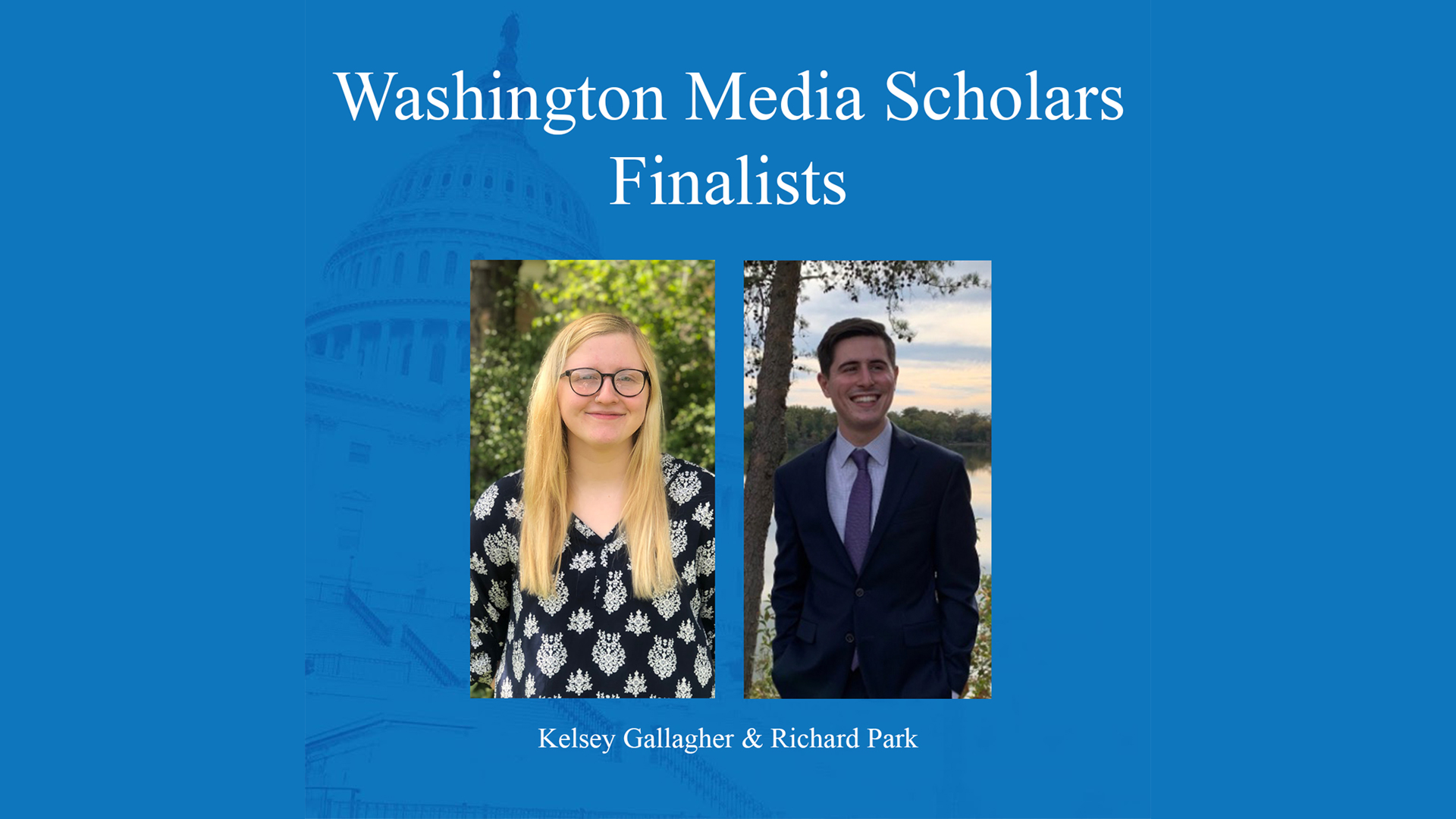Many national programs aim to prepare media students for real-life scenarios they may face in their future careers. However, none are quite like the Washington Media Scholars Foundation Media Plan Case Competition, which spans several months and ultimately requires two-student teams to develop a hypothetical strategic media plan for a public policy issue. Kelsey Gallagher, a senior advertising major; and Richard Park, KLN ‘20, who also majored in advertising, participated as a team in this year’s competition and earned a finalist slot.
Gallagher and Park were brought together by Alison Ebbecke, an assistant professor of instruction in the Department of Advertising. Although the two students had taken multiple classes together — including Ebbecke’s advanced media planning class, where she says they both exhibited outstanding leadership qualities — they never were formally introduced. However, Ebbecke noticed that they both shared an intense interest in media planning and suggested that the two work together for the competition, which started in fall 2019.
“I think in terms of preparing them for a professional setting, it’s as real-life as you can get in terms of what it will be like when you’re out in the world working with clients at an agency,” says Ebbecke, who served as their faculty advisor for the competition.
Thankfully, Gallagher and Park found that their leadership styles complemented one another’s and they even developed a friendship.
“We worked pretty similarly but also we covered each others’ weaknesses,” Park says. “So it was really fun working with [Gallagher] and it really helped us put forth the best work possible.”
Gallagher and Park, who competed under the team name Gallagher and Park Media (GP Media), became one of the six groups that made it through the qualifying and semifinal rounds. They spent hours every week developing their final media plan and carved out time to consult with Ebbecke.
“It was a lot of finding times that we knew would work best for both of us...especially when stuff started to go virtual, we ended up Facetiming a lot and kind of working through the prompt together,” Gallagher says. “We both found ways to be really flexible with each other, especially because I had such a tight schedule at the time. Richard was great with finding ways he could meet with me on times when I was actually available. It was a lot at certain points but we knew that the end result was going to be worth it so we just kept pushing through.”
Due to the COVID-19 pandemic, Gallagher and Park could not travel to Washington, D.C. for the annual Media Scholars week. There, finalists typically network with media and advertising professionals, tour major media company sites such as Google, The Washington Post and iHeartMedia and prepare for their final presentations. But the foundation made these sessions virtual instead, which gave this year’s participating companies some flexibility.
“The Washington Media Scholars Foundation did an amazing job at kind of shifting into a completely virtual landscape. They had mentioned a couple of times that this was completely new to them,” Gallagher says.
The students’ final presentation laid out their media suggestions for the competition’s case study “Hotels, Motels and ProTels: Bay Side’s Battle for Summer Games Lodging: Defending the 5-star Law.” Presenting virtually was a unique experience that allowed them to access the materials they needed more easily. Additionally, Gallagher believes she and Park were well-prepared because Temple’s virtual classes during the spring semester had helped them build virtual etiquette. Ebbecke says their presentation was a well-done representation and cumulation of their hard work.
“It’s great to see because they didn’t do this for credit,” Ebbecke says. “They really just invested a lot of time, passion and grit into this project over the course of seven months. So the fact that they came out of it still liking each other is amazing in itself.”
Although GP Media did not win the overall competition, Gallagher was selected as the Washington Media Scholars Foundation’s annual Mia Guion Scholarship winner during the competition’s award ceremony held via Facebook Live. Named after a former winner of the competition who passed away in 2018, the scholarship is awarded to the competitor who best demonstrates the participation, preparation, presentation and professionalism that Guion exhibited throughout her life. Guion’s sister even reached out to Gallagher through LinkedIn to express her congratulations.
“It was a wonderful honor not only to get [the scholarship] from foundation but to also have been able to talk to [Guion’s] family and follow in her footsteps in that way,” Gallagher says.
The Washington Media Scholars Foundation Media Plan Case Competition has gone on since 2010. The 2021 application information and competition timeline are on the foundation’s website.

